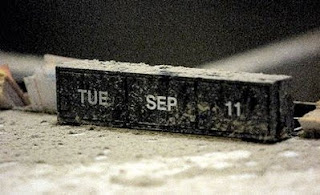For the skeptic, it is logically impossible to believe that both evil, and a good and powerful God exist in the same reality, for such a God certainly could and would destroy the evil that exists in our world. Their logical challenge is usually posed in the form of a statement such as this:
The key to a resolution of this apparent conflict is to recognize that when we say God is all-powerful, we do not imply that he is capable of doing anything imaginable. True, Scripture states, “with God all things are possible” (Mt 19:26), but Scripture also states that there are some things God cannot do. For instance, God cannot lie (Tit 1:2). Neither can he be tempted to sin, nor can he tempt others to sin (James 1:13). In other words, he cannot do anything that is “out of character” for a righteous God. Neither can he do anything that is out of character for a rational being in a rational world. Certainly even God cannot “undo the past,” or create a circular triangle, or make what is false true. He cannot do what is irrational or absurd.
Therefore, it is rational to conclude that God could not eliminate evil without at the same time rendering it impossible to accomplish other goals that are important to him. Certainly, for God to create beings in his own image, who are capable of sustaining a personal relationship with him, they must be beings who are capable of freely loving him and following his will without coercion. Love or obedience on any other basis would not be love or obedience at all, but mere compliance. But creatures that are free to love God must also be free to do the opposite. Creatures who are free to follow his will are also free to reject it. And when people act in ways outside the will of God, evil and suffering is the ultimate result. This line of thinking is known as the “free will defense” concerning the problem of evil (e.g. Alvin Plantinga, Robert Adams).
What about natural evil, evil resulting from natural processes such as earthquakes, floods and diseases? Here it is important first to recognize that we live in a fallen world, and that we are subject to natural disasters that would not have occurred had man not chosen to rebel against God. Even so, it is difficult to imagine how we could function as free creatures in a world much different than our own, a world in which consistent natural processes allow us to predict with some certainty the consequences of our choices and actions. Take the law of gravity, for instance. This is a natural process without which we could not possibly function as human beings, yet under some circumstances it is also capable of resulting in great harm.
Certainly, God is capable of destroying evil, but not without destroying human freedom, or a world in which free creatures can function. Both William Hasker and Douglas Hall agree that this line of reasoning is a significant explanation to the challenge of the logical problem of evil. Hasker claims, “a libertarian view of free will is essential for any adequate solution of the problem of moral evil” (The Triumph of God Over Evil, p.152). This, of course, entails a clear picture of moral responsibility (which is rather weak in determinism), but is also left open to positive value in the notion of free will. His most basic premise is that freedom must entail moral risk. He states, “God simply cannot create free creatures and allow them to choose freely between moral right and wrong, and at the same time guarantee that they will never choose to do evil” (ibid p.62).
Hasker is an Open Theist, and he feels that this is the only position that can offer a credible argument for the existence of evil and God as all-powerful, etc. Hasker believes God is open, that is, God is affected by and responsive to the world that he has made and especially to free and rational creatures. God is more deeply affected by what occurs in his creation than we can ever imagine. God is also open to the future that is itself open, indeterminate and waiting to be determined both by God and by human beings. Open theism insists that God, far from being impassible, is profoundly affected by events in the lives of his creatures; he suffers with us when we are afflicted and rejoices when we find true happiness.
To his credit, Hasker does a good job at accurately presenting the evidence for his position. Hasker argues that God willingly set aside and restricted himself in order to allow for a more genuine relationship between his creatures. He writes, “God has not chosen to do this [unilaterally control everything] but has instead bestowed upon his human creatures a genuine power to make decisions of their own, including decision as to whether or not to cooperate with God’s loving purposes toward them.” He goes on to say, “This creates a real possibility of tragedy in the world, as our actual history illustrates all to vividly . . .” (ibid. 28). If God does not govern all events in the sense that he offers control and stability to existence, and man is ultimately free in the libertarian aspect, then of course evil can co-exist with a good, all-powerful God.

No comments:
Post a Comment